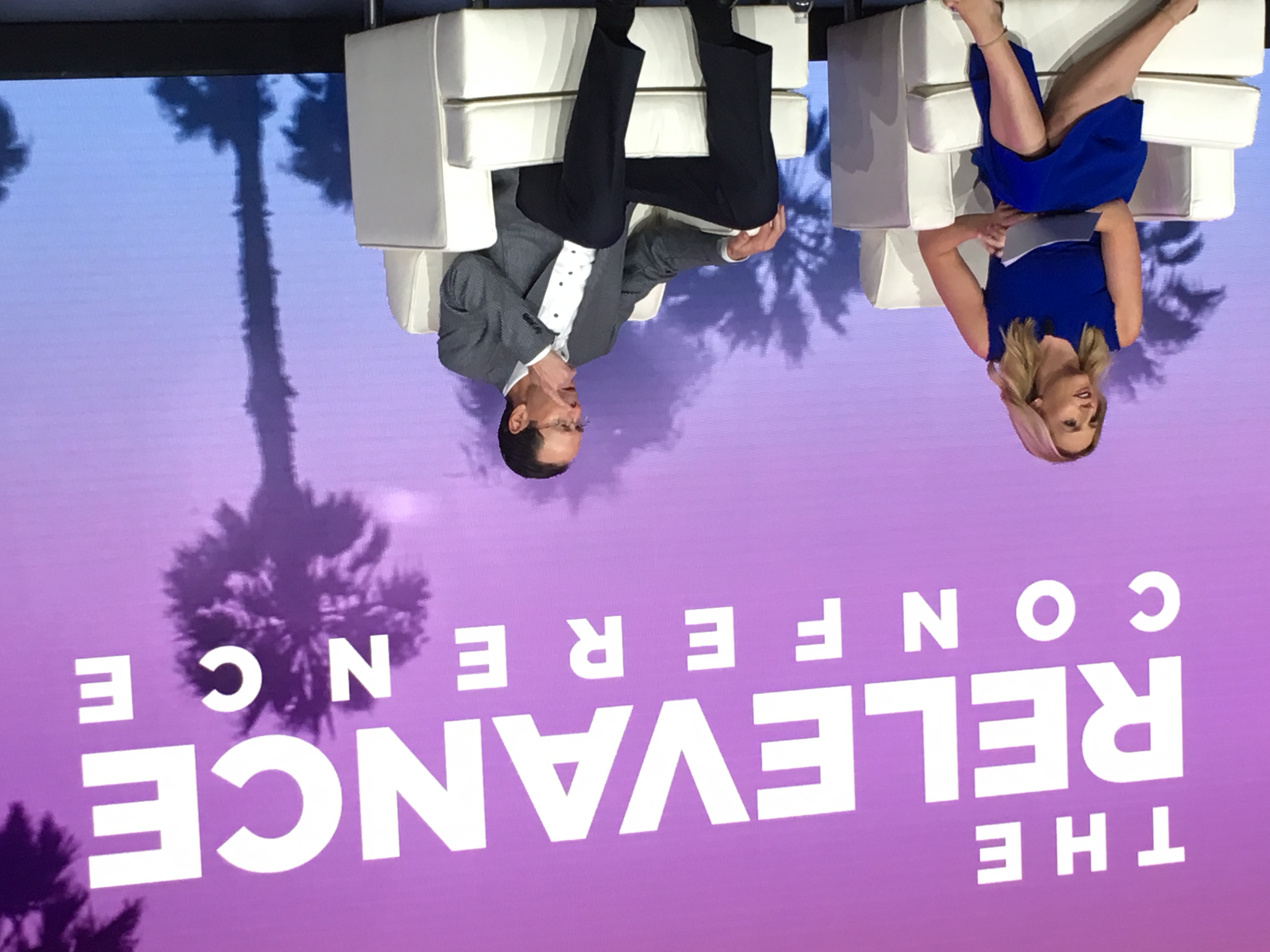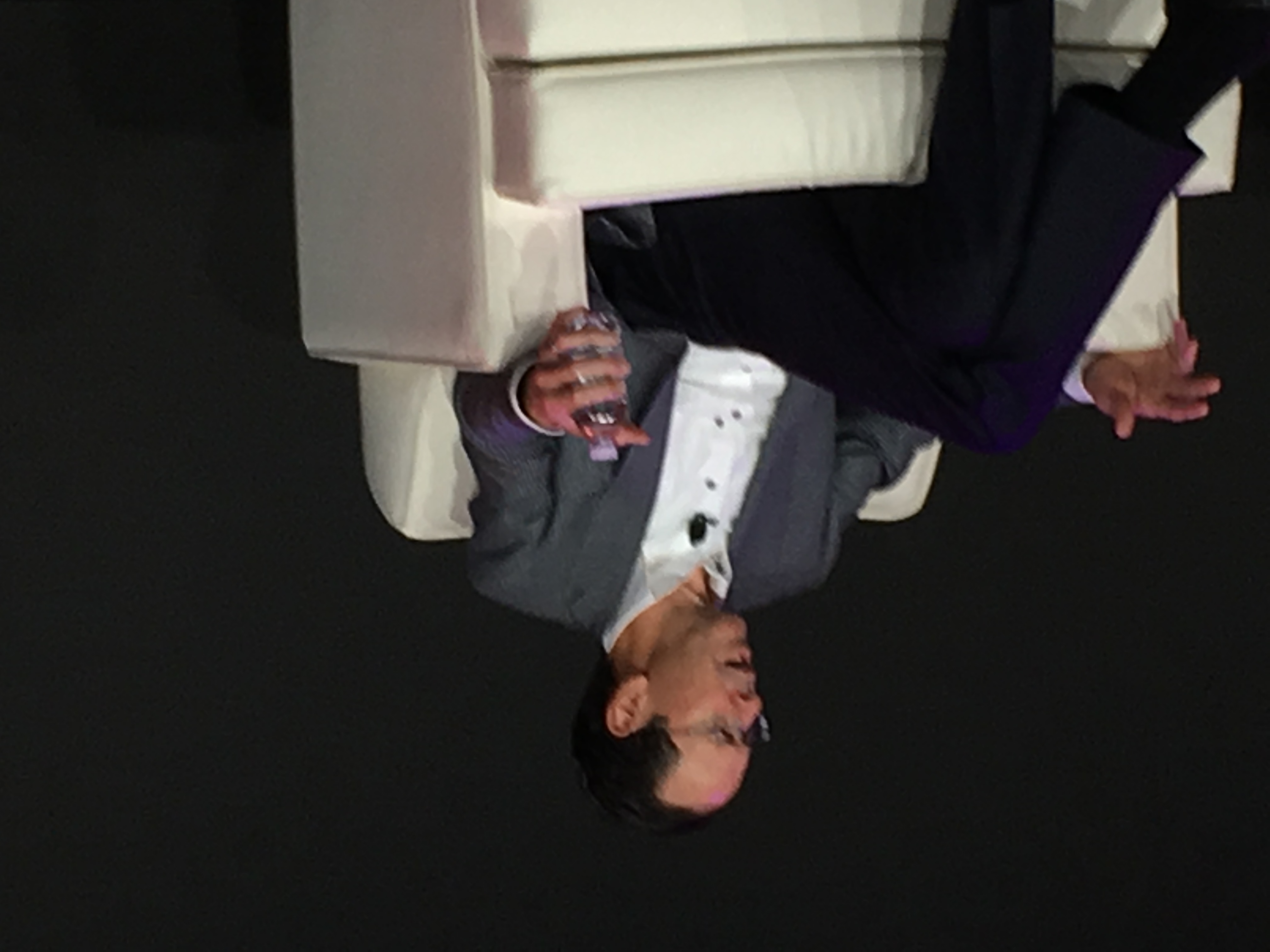AT&T CEO Stephenson Drops Dime on Media Business

The smarter way to stay on top of broadcasting and cable industry. Sign up below
You are now subscribed
Your newsletter sign-up was successful
After launching a new advertising business, AT&T CEO Randall Stephenson criticized the TV business as being slow to change and TV advertising as not being as “smart” as digital advertising.
The comments were interesting considering the billions AT&T has spent to buy media assets and AT&T's status as one of the biggest buyers of TV advertising.
“I think advertising is really, really smart in half the world, said Stephenson, speaking at AT&T’s Relevance Conference Tuesday in Santa Barbara. “The digital half is really good. The digital half is very targeted, The digital half if if you’re an advertiser, you’re getting good feedback. You’re getting the ability to manage campaigns and to deliver ads on your own without a lot of human intervention.”
TV is a very different world, he told CNN’s Poppy Harlow, who conducted the interview.
“If you look at the side of the world where you operate, the premium video original TV business, it looks nothing like that,” Stephenson said. “And the advertising is not terribly targeted. The advertising does require a lot of human intervention. We’re still selling the lion’s share of the advertising in upfronts and so forth.”
AT&T launched Xandr, which said it wants to make advertising matter to consumers and advertisers using the company’s content, distribution, data and technology.
“We actually believe that if you can make the premium video side behave, look, operate like the digital side that people will invest more and that people will be excited about the advertising model on that side,” Stephenson said.
The smarter way to stay on top of broadcasting and cable industry. Sign up below
AT&T got into the TV ad business when it acquired DirecTV.
Related: AT&T to Acquire AppNexus as Start of TV Ad Marketplace
“We have all this data on our subscribers. Viewership data, we have location data on mobile and so forth. We have been, in a very what I’ll call primitive fashion, working with some of you guys here putting together a business model and said what would happen if you could get that targeted into your programming what would that look like,” he said.
“And what it looks like is you have a business where traditional subscription revenues are declining 3 or 4% a year and the advertising on those is growing 16 17% year over year. And that’s not being very good at it yet,” he said.
Stephenson said the goal was to deliver better, more targeted advertising.
“The objective is not just to present the same kind of ads just to very targeted audiences,
But change how advertising is delivered and how it’s consumed,” he said.
For example, he said, AT&T knows most viewers have a smartphone in their pocket while they are watching TV. “Can you begin to engage the customer in advertising on a very brief basis, but then if it’s something the customer wants to engage in, direct it to the smart phone but get back to the programming?"

Stephenson bristled when Harlow said he has been described as an unlikely media mogul since acquiring Time Warner, now AT&T’s WarnerMedia unit.
“I’ve been involved in a lot of different businesses in a lot of different industries,
I’ve not been exposed in depth to many industries that averse and reluctant to change as much as the media industry,” Stephenson said. “It’s fascinating to me. If you think of media you think of entertainment and how it moves fast, but in terms of business models and changing how you deliver the product, it is an industry that has as much inertia as any industry I’ve been involved in.”
He went on to say “It’s a very slow moving industry. When you talk about change and you talk about changing how the content is delivered, how content is paid for and how content is monetized, it’s going to have to change, there’s just walls go up. It’s really interesting. It’s been intriguing to watch and I think it’s going to be fun to go through this process and see if we can make some of these pivots.”
In previous interviews Stephenson has talked about increasing investment in HBO.
Related: AT&T Aims to Create More Content, Sell Better Ads
He said the goal was to make sure that “as you go through the course of a year to make sure there’s always something new and fresh on HBO. You don’t have these customer patterns of people coming in and out for the content. You’d like them to be engaged with the content year round and rather persistently. We think that makes for a better experience and a better product.”
That would mean not just having original content on Sunday nights to create engagement every day.
“What can you do that drives that kind of engagement, that kind of interaction where customers or viewers literally think every day I need to be on HBO to see something, that there’s something engaging that attracts them to it? And so I do believe it’s going to require a little more investment,” he said.
Stephenson has suggested that the additional money for HBO could come from Turner’s TNT and TBS. He told Harlow that WarnerMedia’s strategy would be set by its CEO, John Stankey.
“You’re number one job as an executive is appropriate allocation of capital resources. That’s just what you do as a living, to be quite candid. So John Stankey’s a big boy, he’s over running WarnerMedia. He’s got some big boy decisions to make in terms of how he allocates capital to accomplish what we want to do,” he said.
“And so that means some areas are going to get more capital, some areas are going to get less capital, but you do these things over time and I tend to think in a three to five year time horizons. And I don’t think you’re going to wake up tomorrow and see a major capital shift in WarnerMedia but I do think over time capital gets reallocated.”
Stephenson was also asked about his quote that Netflix was the Walmart of subscription video services and HBO was the Tiffany of content.
Related: Stephenson: Netflix is 'Walmart'; HBO is 'Tiffany'
He said Walmart CEO Doug McMillon, whom he described as both a dear friend and a really big customer, asked the same question.
“I told him look, if I am going to go shopping for something, whatever it is, I’m going to go to one place where I know they had everything I might be looking for. Walmart comes to mind. And I said you’d probably prefer I said Walmart and not Amazon, right?”
Jon has been business editor of Broadcasting+Cable since 2010. He focuses on revenue-generating activities, including advertising and distribution, as well as executive intrigue and merger and acquisition activity. Just about any story is fair game, if a dollar sign can make its way into the article. Before B+C, Jon covered the industry for TVWeek, Cable World, Electronic Media, Advertising Age and The New York Post. A native New Yorker, Jon is hiding in plain sight in the suburbs of Chicago.

